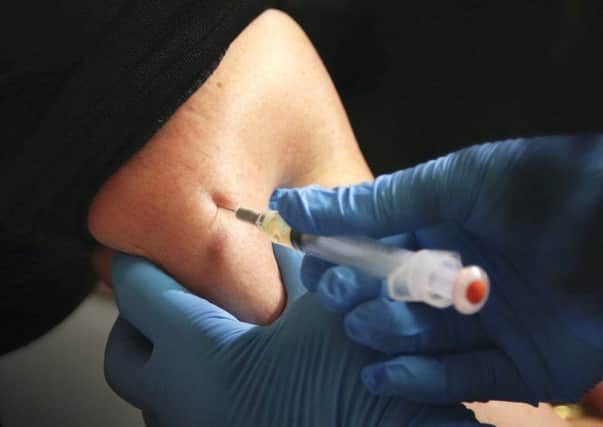Vaccinating boys against HPV may reduce cancer rates


A two-year study of 235 patients in Scotland with head and neck cancer found HPV in 60 per cent of cases.
HPV is a sexually-transmitted infection and some types are linked to cancer, in women particularly cervical cancer, and also of the head and neck.
Advertisement
Hide AdAdvertisement
Hide AdResearch co-author Kevin Pollock, of Glasgow Caledonian University, said head and neck cancer has been increasing over the last 25 years, particularly among men.
In 1994, there were 100 cases in Scotland, but by 2015 this had more than tripled to 350.
Dr Pollock said: “Some of the reasons for this increase are due to alcohol and smoking, but we think the proportion of HPV-related head and neck cancers are increasing. This might be due to a change in sexual behaviours.”
He welcomed Scottish Government plans to extend the school HPV vaccination programme to cover boys and girls.
He said: “Our latest data shows that 78 per cent of people with head and neck cancers were men and that HPV was present in 60 per cent of the cancers.
“This means the vaccine may reduce some of these cancers in the long term in Scotland.
“Not only that, but when we looked at the deprivation status of these cases - much like cervical cancer - head and neck cancers are disproportionately experienced by more deprived individuals.
“We know that smoking and alcohol consumption are linked to these cancers and policies are in place to try and reduce this consumption, but the great thing about a vaccine given to young boys is that if you give it early enough, and see a high uptake across all the deprived areas, you are reducing the inequality.”
Advertisement
Hide AdAdvertisement
Hide AdThe findings follow a report in April from Dr Pollock and academics from Strathclyde, Aberdeen and Edinburgh universities, which suggested routine vaccination of schoolgirls in Scotland with HPV has led to a dramatic reduction in cervical disease in later life.
Since a UK-wide immunisation scheme for girls aged 12 and 13 was introduced a decade ago, researchers found a reduction of up to 90 per cent of instances of pre-cancerous cells being discovered at smear tests aged 20.